Essential oils have exploded in popularity in the last decade. However, they’ve long been enjoyed for their therapeutic benefits, beauty benefits, and aromatherapy benefits. In skin care, essential oils can be an ideal replacement for synthetic fragrances and toxic, artificial ingredients.
At The Spa Dr.®, we use essential oils as natural alternatives for synthetic fragrance, for both their skin-enhancing properties and the added benefit of their light and refreshing scents.
Here are 11 of the best essential oils for skin care, their benefits, and how to use essential oils safely.
1. Tea Tree Oil
Tea tree oil is widely known as one of the best essential oils for the skin. It has antimicrobial and anti-inflammatory properties and may help reduce acne breakouts for Olivia types with mild to moderate acne. Furthermore, research shows that tea tree oil is known to help soothe seborrheic dermatitis and heal wounds, which can benefit Emmett skin types. Don’t know your skin type yet? Take The Skin Quiz to find out yours.
Tea tree oil also has antifungal and antiviral effects. That means it can help with pesky skin issues such as warts, athlete’s foot, and nail fungus. Keep a tea tree oil blend in your gym bag for this use! However, when using tea tree essential oil, make sure it is diluted. The undiluted variety can burn and irritate the skin when applied directly.
2. Mandarin Peel Oil
Mandarin peel oil is a gentle oil that may help reduce the appearance of pigmentation from stretch marks, scarring, and acne. It has a bright and refreshing citrus scent and because of that, it is used in many natural products for the household and in skin care – including our Step 2: NOURISH Antioxidant Serum. Mandarin peel oil also has astringent properties that help tone skin and smooth pores.
3. Ylang-Ylang Flower Oil
Ylang-ylang flower essential oil has an exotic sweet smell and a euphoric, sedative effect on the nervous system, providing relief from tension and stress. Topically, ylang-ylang oil helps with sebum balance for overly dry and overly oily complexions. It also has an amazing ability to help maintain proper moisture levels by preventing the skin’s water loss. This makes the skin appear resilient and smooth. It also has a soothing effect. It is one of the star oils in The Spa Dr.® Daily Essentials proprietary 100% organic, natural, essential oil blend.
4. Bergamot Fruit Oil
It wouldn’t be a list of the best essential oils for skin care without bergamot fruit oil. This oil has a zesty and citrusy natural fragrance as well as antiseptic and antibacterial properties. It helps regulate sebum secretion and has been known to even out skin tone and promote wound healing. Blemishes of all types benefit from its topical application.
Since this is a citrus oil, it’s important to be careful of sun exposure after using this oil. You can use it in the evenings in small amounts, but some people continue to have sun sensitivity effects 24 hours after use. That’s why in The Spa Dr.® skin care products, we use furanocoumarin-free bergamot oil. Furanocoumarins are a class of plant compounds that make skin more sensitive to sunlight.
5. May Chang Peel Oil
May chang peel oil is widely used in Traditional Chinese Medicine for its anti-congestive, antiseptic, and calming benefits. In skin care, it helps address oily skin and breakouts thanks to its astringent, antimicrobial, and anti-inflammatory properties. May chang peel oil is known for its deep-cleansing and pore-reducing effects without irritating or drying out the skin. In addition to soothing and healing the skin, it has a bright and energizing scent similar to lemons. This is another essential oil you will find in The Spa Dr.® skin care products.
6. Clary Sage Oil
Clary sage oil contains natural antimicrobial agents, making it helpful in addressing wounds and skin infections. Research shows it can help fight certain staphylococcus infections, which are common bacterial causes of skin infections. Clary sage oil also soothes skin and helps calm skin inflammation. It has a sweet, natural, and herbaceous scent.
7. Lavender Oil
Lavender is well-known as being one of the best essential oils for the skin. People love it for its stress-reducing, soothing, and calming properties as well as for its antimicrobial activities against bacteria, fungi, and yeasts. Research shows it also has anti-inflammatory and immune-boosting effects. It also offers pain-reducing and wound-healing properties, making lavender one of my favorites in skin care and skin healing treatments.
8. Jasmine Oil
Jasmine is another essential oil favorite of many people for its sweet and romantic fragrance. Several studies show that jasmine essential oil is antimicrobial and has antibacterial properties. In skin care, it helps even the skin’s appearance and when used for a long period of time may help lighten dark spots. Jasmine oil is also a powerful emollient, helping to lock moisture in the skin. It can also be used on the scalp to hydrate dry areas and reduce dandruff.
9. Frankincense Oil
Frankincense oil is one of the best essential oils for the skin because it promotes cell regeneration. It also acts as an astringent, helping to rejuvenate the skin. Frankincense is especially useful for people seeking a healing oil for imperfections caused by acne. It also helps reduce the appearance of fine lines and wrinkles.
10. Lemon Balm Oil
Lemon balm oil is a cheerful oil with a sweet, warm scent reminiscent of lemons. Its uplifting scent even inspired this old Arabian proverb: “Balm makes the heart merry and joyful.” In skin care, lemon balm helps smooth and tighten skin while also encouraging circulation. Lemon balm oil contains flavonoids that deliver antioxidants to the skin. It also contains caffeic acid and ferulic acid, which help protect the skin against UV damage.
11. Peppermint Oil
One reason peppermint oil is one of the best essential oils for skin is because of its fragrance. The cool, minty scent of peppermint is perfect for opening up the senses for a rejuvenating experience. It also cleanses the skin and has antiseptic and antibacterial properties. Peppermint oil should be diluted with a carrier oil when using it topically to avoid skin irritation.
Essential Oil Safety Tips
Before using essential oils, it is important to know how to use them safely. When they are used correctly, they have many powerful benefits. However, when they are not used with certain precautions, they can cause discomfort, sun sensitivity, and other skin issues. Here are some essential oils safety tips to ensure you can avoid the negative side effects of essential oils.
#1. Check for purity
The purity of essential oils varies greatly, so look for oils with the absolute highest standards. For example, some essential oils are extracted by harmful practices. Before purchasing, ask questions about the extraction process, purity, and concentration. Cold-pressed, organic oils are free from impurities and have more benefits.
#2. Do a patch test
Some people are sensitive to essential oils and may develop contact dermatitis or skin irritation. If you have sensitive skin or tend to react easily, it’s best to do a patch test by applying the skin care product with essential oils to a small area on your inner forearm. Then, place a Band-Aid over the test area. If you develop a rash, redness, or itchiness within 24 hours, then you may have a sensitivity. Reconsider using the product elsewhere on your body.
#3. Start small
Generally, it’s best to start with 2 – 3 drops of essential oils per application. I like to use a carrier oil such as coconut oil, almond oil, or jojoba oil and mix 1 or 2 drops of essential oils in 2 – 5 tablespoons of carrier oil to start. I don’t recommend people apply straight essential oils (without diluting) when they’re first trying it out. Some oils are stronger than others, so you’ll want to dilute them even more.
#4. Be careful in the sun
Furanocoumarin is a chemical component found in citrus peel that causes sun sensitivity (easy burning or excess pigmentation). There is potential for serious damage to the skin after exposure to direct sunlight. The Spa Dr.® skin care products (Daily Essentials Steps 2 and 3), use furanocoumarin-free oil, making these products safe for use with sun exposure. If you use skin care products with citrus essential oils, it’s important to make sure that they’re furanocoumarin-free.
#5 Work with a specialist
If you have specific health or skin issues, it’s best to work with a qualified healthcare provider to help ensure you get the best care possible. Your conditions should be safely monitored. If you want to use essential oils therapeutically, consider working with someone well-trained in essential oils.
Essential oils are a wonderful alternative to synthetic, artificial fragrances. They have many powerful skin benefits when used properly. Which one is your favorite? Leave us a comment and let us know.
The Spa Dr.® Approach
At The Spa Dr.®, our approach is to help shine the light on skin care information and offer our guidance to nurture your skin care journey. We believe we provide information that will help support your self-care and healing, and we want you to feel safe and cared for within our community.
The Spa Dr.® offers natural skin care products that are safe and free from chemicals and toxins that can harm your skin and health. Our products are formulated to contain key nutrients in their pure and active form in order to provide optimal results. In addition, our products are pH balanced towards mild acidity to promote and protect a healthy skin microbiome.
If you are not already part of The Spa Dr.® community, please join us at TheSpaDr.com and on social media.
Share this article with your friends and spread the word to promote natural beauty!
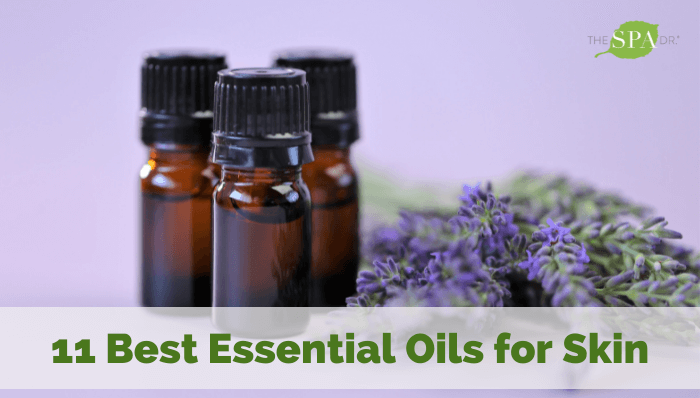
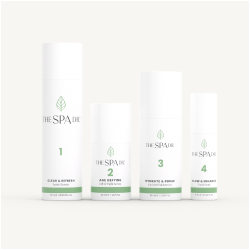
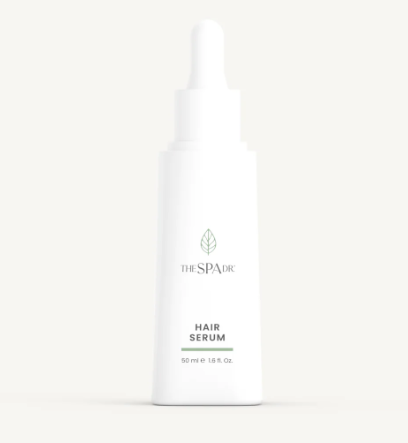
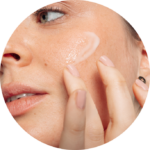

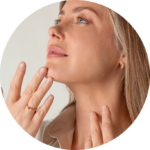

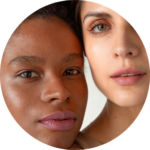
Reader Interactions